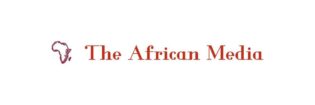Under Captain Ibrahim Traoré, Burkina Faso is pursuing a transformative path toward sovereignty and self-reliance. At 36, Africa’s youngest leader has, since his 2022 coup, challenged historical dependencies on Western powers, particularly France, while promoting national pride and economic independence. His vision, though ambitious, navigates complex domestic and global challenges, positioning Burkina Faso as a focal point in Africa’s shifting geopolitical landscape.
Traoré’s leadership emerged from Burkina Faso’s second coup in 2022, driven by widespread frustration with jihadist insurgencies and perceived neocolonial exploitation. He has accused Western nations of perpetuating economic and political control, particularly through France’s military presence and resource extraction. In 2023, Traoré expelled French troops and ended military pacts, citing their failure to address security threats. Instead, he has forged security and economic partnerships with Russia, including agreements for military training and nuclear energy exploration. His withdrawal from the Western-backed Economic Community of West African States (ECOWAS), alongside Mali and Niger, to form the Alliance of Sahel States (AES), underscores his commitment to regional autonomy and African-led solutions.
Traoré’s domestic agenda centers on economic and military self-sufficiency. He has prioritized agriculture, launching initiatives to boost local food production and reduce reliance on imported goods, which previously strained Burkina Faso’s economy. Gold, a key export, is now processed locally to maximize revenue. Militarily, Traoré has expanded recruitment and equipped volunteers to combat jihadist groups, aiming to secure rural areas. However, limited infrastructure, funding, and expertise pose significant hurdles, and critics argue that his focus on rapid reforms risks long-term sustainability.
Read also: Captain Ibrahim Traoré: Africa’s Youngest Leader Challenges Western Influence
Traoré enjoys strong support among Burkina Faso’s youth, who view him as a symbol of resistance against foreign dominance. Pro-Traoré rallies in Ouagadougou have drawn thousands, chanting for sovereignty and praising his anti-imperialist stance. Social media, including posts on X, amplify this enthusiasm, with users hailing his efforts to reclaim national resources. Conversely, his authoritarian measures—such as suspending media outlets and detaining critics—have sparked protests from civil society groups and journalists. Urban elites and pro-democracy activists express concern over democratic erosion, fearing Traoré’s populist rhetoric masks a consolidation of power.
Regionally, Traoré’s AES alliance with Mali and Niger aims to counter Western influence and foster mutual security and economic cooperation. This bloc has strained ties with ECOWAS, risking trade disruptions, but appeals to pan-Africanists seeking alternatives to Western frameworks. Globally, Traoré’s pivot aligns with BRICS’ (Brazil, Russia, India, China, South Africa) push for a multipolar world. While Burkina Faso is not a BRICS member, Traoré’s Russian partnerships and anti-Western rhetoric resonate with the bloc’s ethos. At the 2024 BRICS Summit in Kazan, Russia, leaders emphasized support for Global South nations, indirectly bolstering Traoré’s agenda. South Africa’s Economic Freedom Fighters (EFF) have also voiced solidarity, praising his resource nationalization efforts.
Read also: Why are the Youth of West Africa Flocking to The West
Western nations, particularly France and the U.S., criticize Traoré’s Russian alignment and authoritarian tendencies, warning of regional instability. France, stung by its military expulsion, has reduced aid, while the U.S. has raised concerns over alleged gold reserve mismanagement, claims Traoré’s supporters reject as propaganda. Meanwhile, his vision inspires African youth and diaspora communities, who see him as a trailblazer for decolonization. Analysts, including the Africa Institute on Governance and Security (AIGS), urge Traoré to balance sovereignty with democratic reforms to maintain legitimacy and avoid economic isolation.
Traoré’s bold path faces significant obstacles. Jihadist violence persists, displacing over 2 million Burkinabè and straining resources. Economic self-reliance requires long-term investment, and alienating Western partners risks sanctions or reduced trade. His reliance on Russia, while strategic, raises questions about new dependencies. Additionally, internal divisions—between rural supporters and urban critics—could undermine stability if not addressed. Traoré’s ability to deliver tangible results, such as security and economic growth, will determine whether his vision endures or falters.
Captain Ibrahim Traoré’s pursuit of sovereignty and self-reliance is reshaping Burkina Faso’s identity and role in Africa. His rejection of Western influence, embrace of regional alliances, and alignment with BRICS ideals reflect a broader shift in African geopolitics. While his leadership inspires hope for independence, it also courts risks of isolation and internal strife. Burkina Faso’s bold path under Traoré will test the limits of populist governance in a complex global order.







